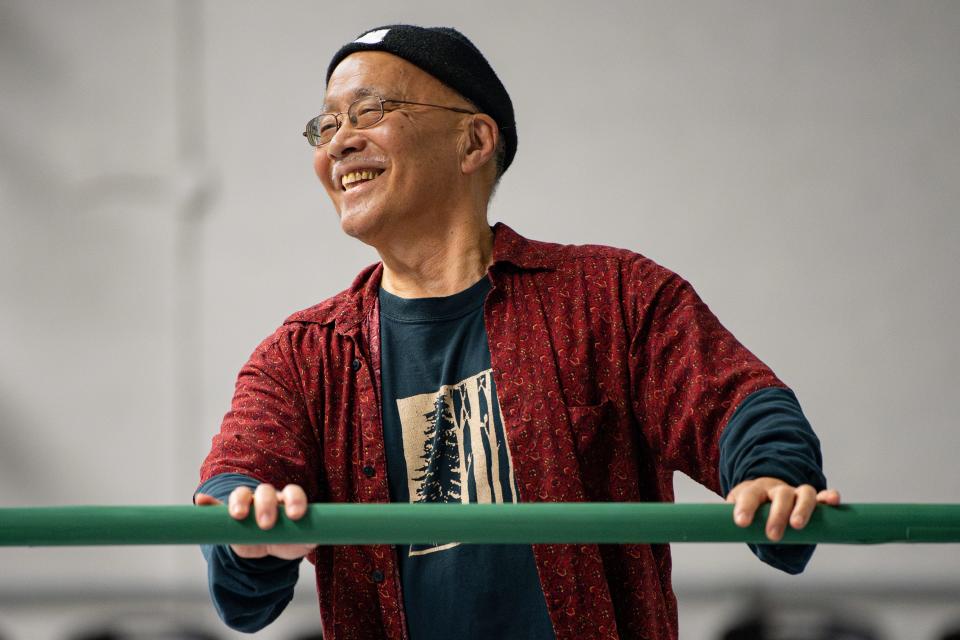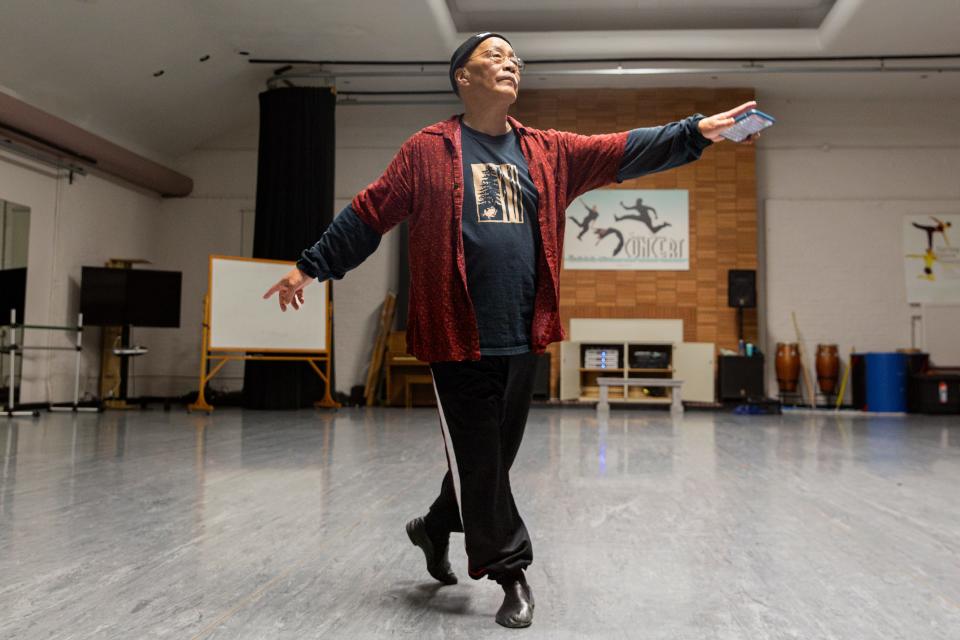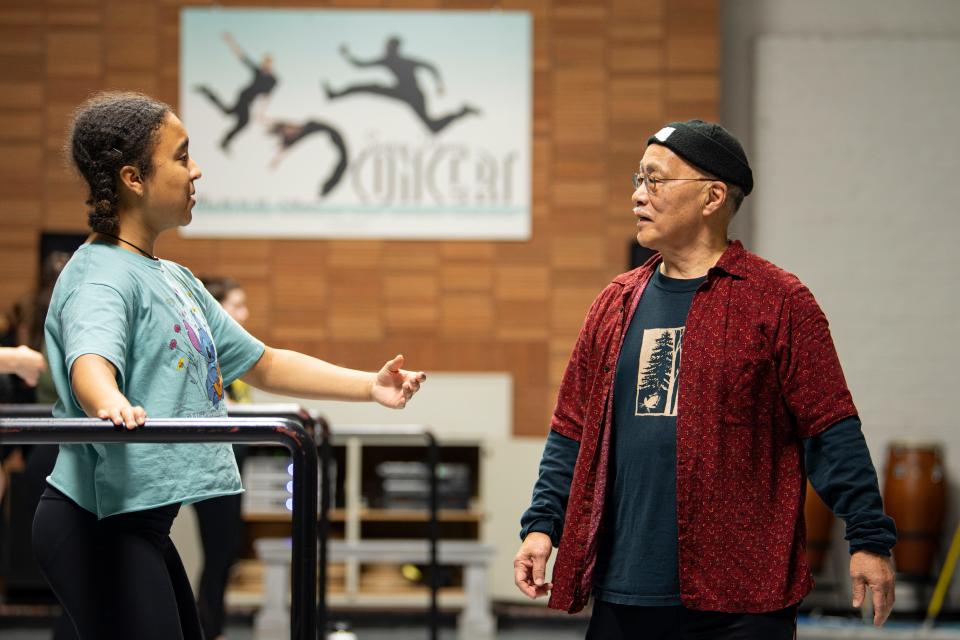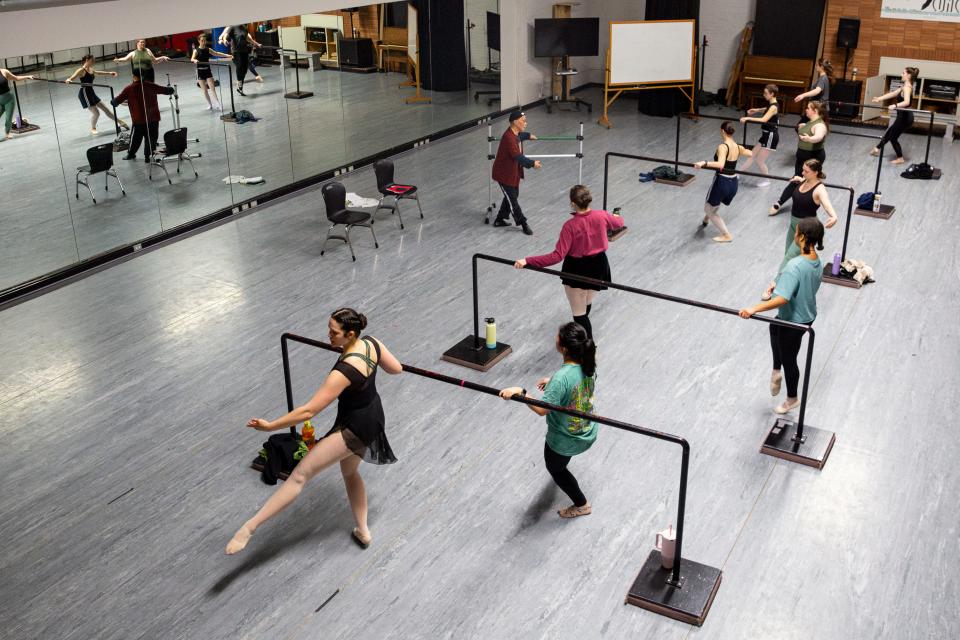Meet Our Mid-Valley: How Western Oregon professor's short film 'Bonsai' came together
This is part of a series introducing readers to individuals who are passionate about our Mid-Valley community.
A comment Les Watanabe's mother, Junko, made in 1985 as they watched his father, Ismai, tend to his garden, which included a Bonsai tree, stuck with him.
“He’s made my life a Bonsai,” she said.
His mother died two years later, but her words bounced around in his head for decades. About 20 years later, he put Junko’s words – and his mother’s point of view of his parent’s relationship – into a performance piece.
After many revisions, “Bonsai” has become an award-winning short film by the Western Oregon University dance professor.
“I have a lot of pieces that I really like, but this one is the most personal because it’s family,” said Watanabe, 75. “So now I feel that I can let it rest.”

Les Watanabe discovers dance
Watanabe’s parents met and were married in Japan, as described in “Bonsai.”
They settled in Denver, where Watanabe was born. His father was in the Army and the family moved from Germany to Japan to Los Angeles in his youth.
He said he felt out of place in middle school in LA. So he accepted when a friend, Marvin Cassio, offered to teach him how to dance. Every Saturday for five years, Watanabe and other boys from their school got together and learned Motown dances.
Something sparked while taking a modern dance class from Janice Gudde Plastino at Harbor Community College in Wilmington, Calif. Plastino encouraged Watanabe to pursue dancing, but warned him that it would take 10 years to become a professional dancer.

Watanabe earned a degree at the California Institute of the Arts and set out to make a living as a dancer.
His mother was not pleased.
“Once I chose dance, all communication was off,” he said. “She wanted nothing to do with me. She says, ‘You chose the lowest profession. I can’t even tell my uncles or my brothers or my sisters what you’re doing. You’re a biggest shame and embarrassment.’”
How a performance with Rita Moreno brought reconciliation
Undeterred, Watanabe learned every dance style he could including ballet, flamenco, jazz and tap. He was tutored by dancer and choreographer Eugene Loring, at UC-Irvine. He was hired by a professional dance company and toured for three years.
One of his first big breaks was dancing the in 1973 CBS special “Ailey Celebrates Ellington CBS Special,” produced by Howard Krawitz. He moved to New York in 1974 and was cast in the original 1976 Broadway cast of “Pacific Overtures.” The musical, which featured an All-Asian cast, was written by Stephen Sondheim and directed by Harold Prince.
A couple years later, Watanabe was hired as a back-up dancer for the legendary Rita Moreno. For a year, they toured nightclubs and hotels throughout the country.
Watanabe said when Moreno’s husband, Leonard Gordon, was at the performances, he would insist Watanabe and the two other dancers be behind Moreno on stage. When Gordon wasn’t there, Moreno insisted they come forward because she knew they were better dancers than her.

Half of the time on that tour they opened for Ben Vereen. The other half they opened for Bill Cosby.
“We went together and had lunch or breakfast with him,” Watanabe said of Cosby. “He was always trying out his jokes. If they were good, we would see them that night. If we didn’t laugh, he wouldn’t do them. That was pretty cool.”
Watanabe’s mother finally came to watch a performance in Las Vegas in 1978, accepting her son’s chosen profession.
Watanabe returns from Paris to the United States
Watanabe was living in Paris with Catherine, his second wife, in 1987 and had spent two years developing what would have been when his first play.
But his father called and said his mother was ill and he needed to come home. They decided to move to California and to be there for his mother who died later that year.
In his 40s, Watanabe decided to go back to UC-Irvine to get his master’s degree. After graduating, he took a position in 1997 as an artist in residency at the University of Oregon. After that ended, he and Catherine decided to move to Portland.
He didn’t know anybody in Portland and didn’t have any real job prospects, so he worked for a temp agency, filing paperwork at an office from 9 a.m. to 5 p.m. Monday through Friday.

The temp agency work was followed by teaching creative dance to second graders for two years. It didn’t go well. He said he spent most of the time stopping kids from fighting and running into the street.
He taught at Arts and Communication Magnet Academy in Beaverton for a many years and started a photography and video business recording dance and producing and directing dance films.
He started teaching at Western Oregon and the University of Portland 10 years ago. He drives from his Portland home to Monmouth two days a week.
Bonsai is a film that encompasses Watanabe's life
Around 2003, Watanabe started to mold his mother’s words into a dance piece. He found a couple of narrators and some dancers and put on a live performance of Bonsai and it was videotaped. Over the years, Watanabe made changes, except for the female narration by June Wright.
Then about seven years ago, he brought back dancers he taught when they were younger to perform it again, and he filmed it again with better cameras.
Then he let it sit again.
Watanabe approached “Bonsai” again in 2023. He brought back the original composer two decades later to update the score. He didn’t like the original male narrator, so he brought in then-WOU professor David Janowiak to redo it.
Finally, 20 years after first videotaping it and nearly four decades after the conversation with his mother, “Bonsai” was done.
“And I said I’m happy with it,” Watanabe said.
“Bonsai” has won Best Experimental Film at the 8 Halfilm Awards in Rome, the Frida Film Festival in Paris, the Florence Film Awards and the International Gold Awards as well as awards at the Paris Film Awards and New York Movie Awards.
“It’s being shown all over the world,” Watanabe said. “They tell me it’s going to be shown here, shown there, thank you. India, they loved it in Mumbai. They just loved it. They raved about it. They asked me if I could come there just to receive the award.”
Bill Poehler covers Marion and Polk County for the Statesman Journal. Contact him at bpoehler@StatesmanJournal.com
This article originally appeared on Salem Statesman Journal: How Western Oregon prof's award-winning film 'Bonsai' came together

